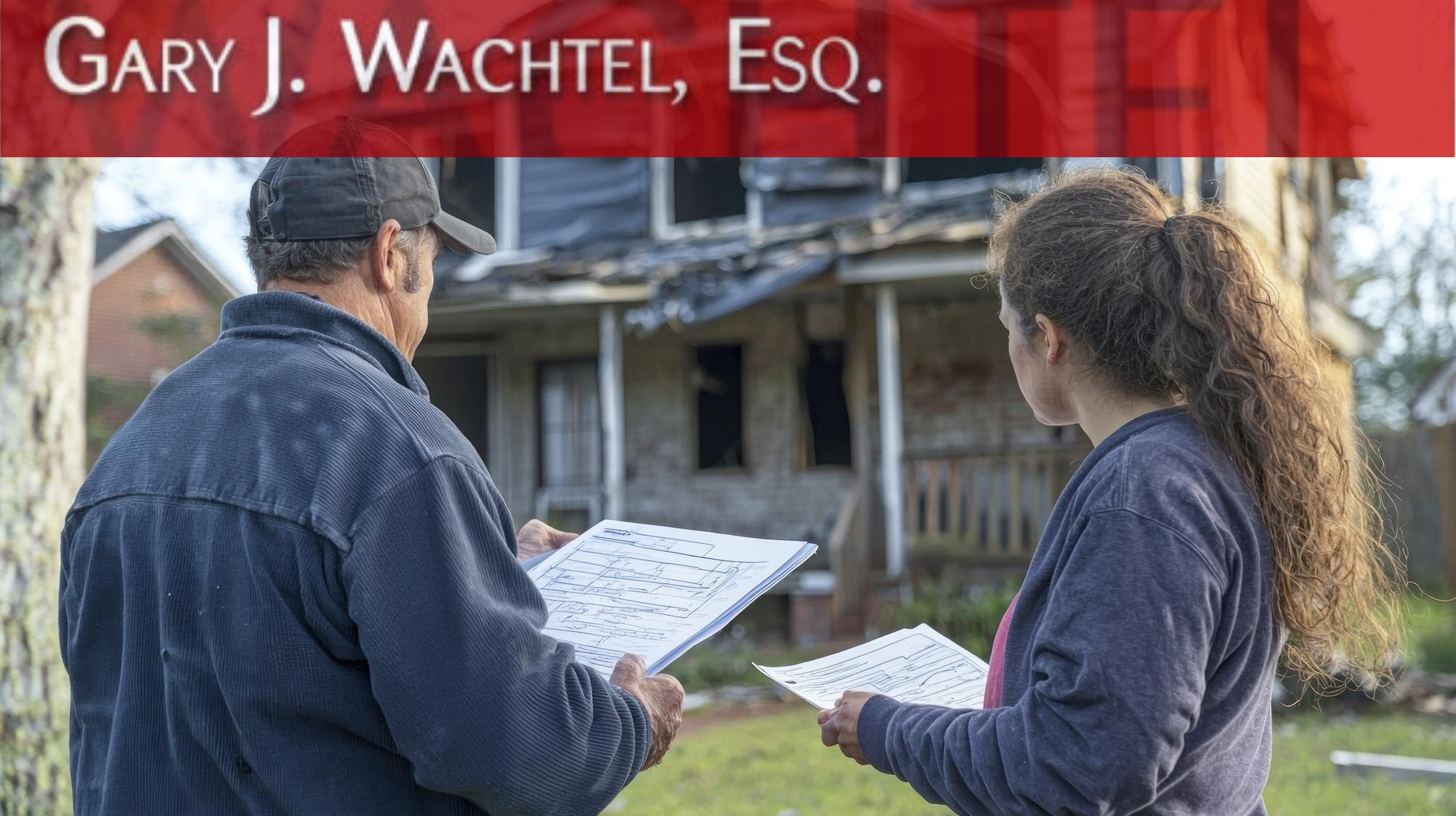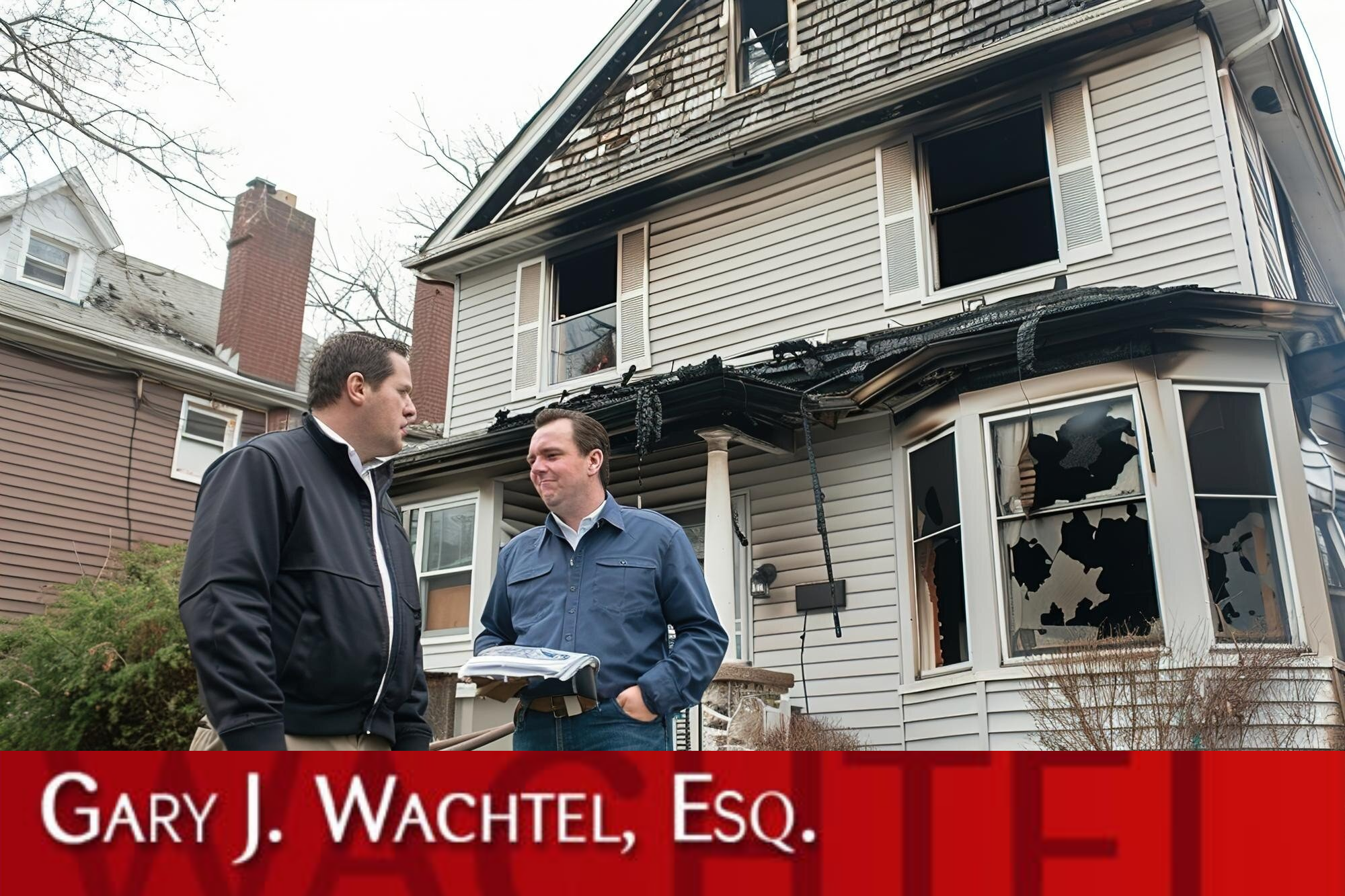Property damage is a serious issue that can lead to costly repairs, legal disputes, and even eviction battles in New York City. Whether it’s caused by natural disasters, tenant negligence, or landlord neglect, both tenants and landlords have specific legal responsibilities when handling property damage.
New York real estate laws clearly outline who is responsible for repairs, how to seek compensation, and what legal actions can be taken if one party fails to fulfill their obligations. If you’re dealing with property damage in NYC, understanding your rights and responsibilities is crucial to protecting your investment or your living situation.
Navigating a commercial lease in New York City is no small feat. Whether you’re a business owner searching for the perfect retail space or a landlord leasing an office building, the process is filled with legal complexities, financial risks, and long-term commitments. Unlike residential leases, commercial leases often involve intricate clauses, extensive negotiations, and significant financial stakes, making it essential to approach each agreement with caution. Without the right legal guidance, what may seem like a routine leasing agreement can quickly turn into a costly legal battle, leading to disputes over rent escalation, maintenance responsibilities, subletting rights, or early termination penalties.
With NYC’s competitive real estate market and stringent property laws, even a minor oversight in a lease agreement can have major consequences. Business owners must ensure that lease terms align with their operational needs, while landlords must protect their properties and rental income from potential risks. A commercial real estate attorney in NYC plays a crucial role in protecting your interests, negotiating favorable lease terms, and ensuring compliance with the city’s ever-evolving real estate laws. From conducting due diligence and drafting airtight agreements to resolving disputes and navigating zoning regulations, a skilled attorney provides invaluable support throughout the leasing process.
Whether you’re signing your first commercial lease or renegotiating an existing agreement, having experienced legal counsel by your side can help you avoid common pitfalls, safeguard your financial investment, and ensure that your lease terms serve your long-term business goals. Here’s why hiring an experienced real estate attorney is essential for any commercial leasing transaction in New York City. Let’s break down the legal steps for tenants and landlords when dealing with property damage and how a tenant lawyer in New York can help resolve disputes efficiently.

Who Is Responsible for Property Damage in NYC?
Responsibility for repairing property damage depends on the cause of the damage and what the lease agreement states. However, there are general legal guidelines that determine whether the landlord or tenant is liable.
When Landlords Are Responsible
Landlords in NYC must keep rental properties in a habitable and safe condition under the Warranty of Habitability, a legal obligation that applies to all rental properties. They are responsible for repairs when property damage is caused by:
- Structural issues, such as foundation problems, leaking roofs, or unsafe staircases.
- Plumbing, electrical, or heating failures that affect the habitability of the unit.
- Water leaks and flooding from faulty pipes or building maintenance issues.
- Pest infestations, including rodents or bedbugs, unless the tenant’s actions caused them.
- Fire or storm damage, depending on the circumstances and lease agreements.
If a landlord fails to make necessary repairs, tenants have legal options, including withholding rent, filing a complaint with NYC housing authorities, or taking the matter to court with the help of a tenant lawyer in New York.
When Tenants Are Responsible
Tenants can be held responsible for property damage in situations where:
- The damage was caused by their negligence, such as leaving a bathtub overflowing or causing a kitchen fire.
- Unauthorized alterations to the apartment resulted in damage.
- Guests or pets caused significant damage beyond normal wear and tear.
In these cases, landlords may deduct the cost of repairs from the tenant’s security deposit or even sue for damages if the costs exceed the deposit. However, tenants also have legal defenses, especially if the damage resulted from conditions the landlord failed to address in a timely manner.
Legal Steps Tenants Can Take for Property Damage
If a landlord refuses to address property damage that is their responsibility, tenants have several legal avenues to enforce repairs and seek compensation.
1. Notify the Landlord in Writing
Before taking legal action, tenants must formally notify the landlord about the damage in writing. The notice should include:
- A detailed description of the damage.
- The date it occurred or was first noticed.
- A request for repairs within a reasonable timeframe.
Keeping records of all communications, including emails and letters, is essential if legal action becomes necessary.
2. File a Complaint with NYC Housing Authorities
If the landlord ignores repair requests, tenants can file a complaint with the New York City Department of Housing Preservation and Development (HPD). HPD can inspect the property and issue violations against the landlord, which may force them to make repairs.
3. Withhold Rent or Pay for Repairs and Deduct the Cost
Under NYC tenant laws, tenants may have the right to:
- Withhold rent if the damage makes the unit uninhabitable.
- Make the repairs themselves and deduct the cost from their rent.
However, these actions come with legal risks, and consulting a tenant lawyer in New York before proceeding is highly recommended.
4. Sue the Landlord for Damages
In severe cases where a landlord’s negligence has resulted in significant property damage—such as flooding, mold infestations, or structural collapses—tenants may file a lawsuit for:
- Compensation for damaged personal belongings.
- A court order forcing the landlord to complete repairs.
- Potential reimbursement for temporary relocation costs.
A tenant lawyer in New York can help tenants file a Housing Part (HP) action in NYC Housing Court to demand necessary repairs.
Legal Steps Landlords Can Take for Property Damage
Landlords have legal rights when tenants cause excessive damage to the rental property. However, they must follow the proper legal process when holding tenants financially accountable.
1. Conduct an Inspection and Document the Damage
If a landlord discovers property damage at move-out or during a routine inspection, they should:
- Take photographs and videos of the damage.
- Gather maintenance records to prove the damage wasn’t pre-existing.
- Obtain repair estimates from contractors.
Having strong documentation is key to deducting repair costs from the security deposit or pursuing further legal action.
2. Deduct Repairs from the Security Deposit
Landlords can legally use the tenant’s security deposit to cover property damage, provided they:
- Notify the tenant in writing about the damages and repair costs.
- Provide an itemized statement detailing deductions.
- Return any remaining balance within 14 days of the tenant moving out.
Failure to follow these steps may result in legal penalties for the landlord.
3. File a Lawsuit for Damages Beyond the Security Deposit
If the cost of repairs exceeds the tenant’s security deposit, landlords can file a lawsuit in small claims court or housing court to recover additional costs.
4. Initiate Eviction Proceedings for Severe Damage
If a tenant intentionally damages the rental property or refuses to pay for repair costs, a landlord may file for eviction under a holdover proceeding. However, eviction laws in NYC are strict, and working with a tenant lawyer in New York ensures compliance with legal procedures.
Preventing Property Damage Disputes: Best Practices for Tenants and Landlords
Best Practices for Tenants
✅ Conduct a detailed move-in inspection
- Before moving in, carefully inspect the property for any pre-existing damage.
- Take high-quality photos and videos of all areas, including walls, floors, appliances, and fixtures.
- Fill out a move-in condition report and ensure both parties sign it.
✅ Report maintenance issues immediately
- Notify your landlord or property manager as soon as you notice any issues, such as leaks, broken appliances, or electrical problems.
- Keep a written record (emails, texts, or formal requests) of maintenance reports and follow up if necessary.
✅ Follow lease obligations for maintenance and repairs
- Understand what responsibilities you have as a tenant, such as minor maintenance (e.g., replacing lightbulbs or air filters).
- Avoid making unauthorized repairs or alterations that could violate your lease.
✅ Practice responsible living habits
- Prevent avoidable damage by keeping the property clean, avoiding excessive moisture (to prevent mold), and using furniture pads to prevent floor damage.
- Be mindful of guests, pets, and children to avoid accidental damage.
✅ Carry renters’ insurance
- Renters’ insurance can cover accidental property damage, theft, and liability if you accidentally cause damage to the unit.
- Choose a policy that includes personal property coverage and liability protection.
✅ Document the condition of the property upon move-out
- Before leaving, conduct a thorough walk-through and take photos/videos of the unit.
- If possible, request a pre-move-out inspection with the landlord to address any potential concerns in advance.
- Clean the property, remove all belongings, and make minor repairs (if required by the lease) to avoid deductions from the security deposit.
Best Practices for Landlords
✅ Conduct regular property inspections
- Schedule periodic inspections (with proper notice) to check for maintenance issues and tenant compliance.
- Use a checklist to ensure all key areas are inspected, including plumbing, electrical systems, and structural components.
✅ Clearly define tenant responsibilities in the lease agreement
- Include clear terms regarding tenant obligations for maintenance, cleanliness, and reporting repairs.
- Specify restrictions on alterations, such as painting walls, mounting fixtures, or modifying appliances.
✅ Respond promptly to maintenance and repair requests
- Address maintenance issues quickly to prevent further damage and to demonstrate good faith as a landlord.
- Keep a log of all repair requests, responses, and work completed to maintain records in case of disputes.
✅ Require a security deposit and document deductions properly
- Collect a reasonable security deposit to cover potential damages beyond normal wear and tear.
- Before move-in, document the property’s condition with photos and a written report.
- When deducting from the security deposit, provide a detailed itemized statement explaining costs.
✅ Encourage tenants to carry renters’ insurance
- While it may not be legally required in all areas, strongly recommend or require tenants to obtain renters’ insurance.
- This protects both the tenant and the landlord in case of property damage or liability claims.
✅ Foster good communication with tenants
- Establish open lines of communication to encourage tenants to report issues early.
- Respond professionally and respectfully to concerns to build a positive landlord-tenant relationship.
✅ Follow legal procedures when handling disputes
- If a dispute arises, attempt to resolve it amicably through discussion and documentation.
- Be familiar with local landlord-tenant laws to ensure proper procedures for handling damage claims, evictions, and security deposit returns.
By implementing these best practices, both tenants and landlords can reduce misunderstandings, prevent costly disputes, and maintain a positive rental experience.
.
Get Legal Help for Property Damage Disputes in NYC
If you’re facing a property damage dispute, whether as a tenant seeking necessary repairs or a landlord addressing tenant-caused damages, securing legal guidance is essential to ensuring a fair resolution. Property damage issues can quickly escalate into costly conflicts, making it crucial to have a knowledgeable attorney who understands New York’s landlord-tenant laws.
Gary Wachtel, Esq. specializes in landlord-tenant litigation and has extensive experience handling complex property damage claims in NYC. As a seasoned tenant lawyer in New York, he can help tenants assert their rights when landlords fail to make repairs, as well as assist landlords in holding tenants accountable for damages beyond normal wear and tear. Whether you need to negotiate, mediate, or take legal action, having a dedicated legal advocate on your side can make all the difference.
Don’t let a property damage dispute jeopardize your living situation or rental business. Contact Gary Wachtel, Esq. today to protect your rights and achieve a swift and favorable resolution.






